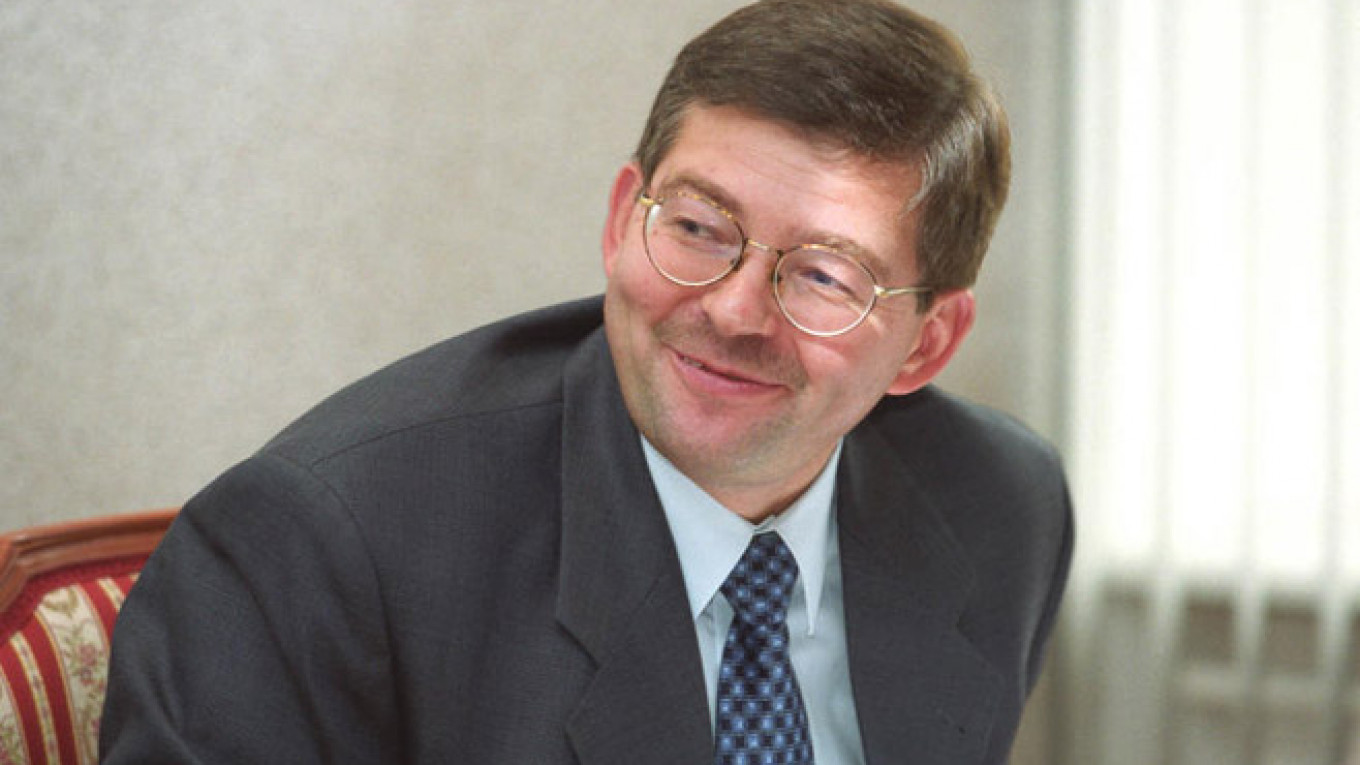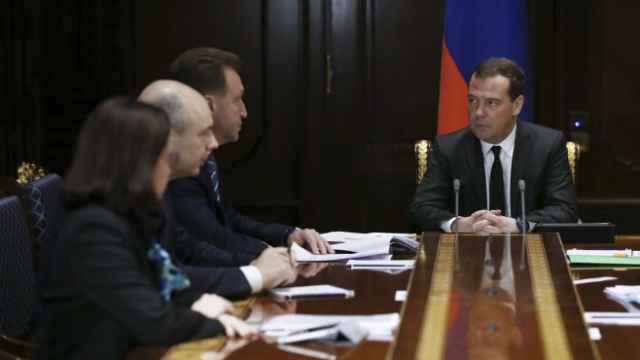The appointment of a new deputy governor to the Central Bank has raised the prospect of shifts in Russian monetary policy as the country continues to grapple with a currency crisis that saw the ruble lose a third of its value against the U.S. dollar over the last two months.
Dmitry Tulin, a technocrat with two spells working at the Central Bank already under his belt, will take over responsibility for monetary policy at the regulator from Deputy Governor Ksenia Yudayeva, who sees her role trimmed to macroeconomic forecasting.
In the face of intense pressure over the ruble's dramatic plunge and a gathering economic crisis, the appointment has again raised questions about the Central Bank's ability to avoid politically driven decision-making.
"There will be changes [in monetary policy], this appointment is not a coincidence," Kremlin economic aide Andrei Belousov told journalists Thursday, news agency RIA Novosti reported.
Yudayeva Sidelined?
U.S.-educated Yudayeva, who joined the Central Bank less than 18 months ago, has been at the forefront of decisions about Russian monetary policy and was criticized last year amid regulatory inactivity as the ruble crashed to briefly become the world's worst performing currency.
Following the announcement of Tulin's appointment Wednesday, Yudayeva said she will answer for financial stability and macroeconomic forecasting at the bank: responsibilities she previously held alongside her monetary policy position.
Yudayeva's diminished role "is a statement that she didn't do well in the job," said Vladimir Tikhomirov, chief economist at BCS Financial Group in Moscow.
Musical Chairs
The comments by Belousov, advisor to President Vladimir Putin, that the appointment indicated a new approach from the Central Bank directly contradicted an earlier statement by Central Bank governor Elvira Nabiullina that there were no changes in the offing.
"I particularly want to emphasize that we are preserving the strategic and tactical benchmarks of monetary policy," Nabiullina said Wednesday, according to the Russian RBC news website.
Tulin's appointment brings the number of deputy governors at the Central Bank to five.
Both Yudayeva and Tulin represented the reshuffle as a mere practical division of responsibilities that would create a more effective regulator, according to Russian media reports.
Old-Hand Tulin
Few surprises can be expected from Tulin, who enjoys a reputation as a highly experienced operator in both the commercial banking sphere and government regulation bodies.
He worked for 10 years in the Soviet Central Bank and served as deputy governor at post-Soviet Central Bank between 1991 and 1994 and again between 2004 and 2006.
Tulin has also worked at the International Monetary Fund, accounting firm Deloitte and Vneshtorgbank, the former name for VTB, Russia's second-largest bank.
In 2010 and 2011, Tulin wrote a series of articles for Russian news site Slon.ru that are peppered with quotes from literary figures including British author Oscar Wilde and French poet Paul Valery.
The pieces do not shy away from trenchant criticism: One article from September 2011 accuses VTB of massaging its financial results while an article from January 2011 censures the imprisonment of tycoon and Putin critic Mikhail Khodorkovsky.
End of an Era?
Some experts warned that expectations of monetary policy changes in the wake of Tulin's appointment could further destabilize Russian markets.
The ruble fell almost 5 percent Thursday to 66.1 versus U.S. dollar after reaching a high of 63.09. It later pared losses to trade at about 65 agains the greenback in the early evening.
Others said that the staffing changes were the logical end of an era.
"After such a shift in the economic landscape … as what happened last autumn some sort of change was essential," Konstantin Sonin, an economics professor at the Higher School of Economics, wrote on his blog Wednesday. "Simply because the 'first cycle' of the life and policies of Nabiullina's Central Bank had come to an end."
Contact the author at h.amos@imedia.ru
A Message from The Moscow Times:
Dear readers,
We are facing unprecedented challenges. Russia's Prosecutor General's Office has designated The Moscow Times as an "undesirable" organization, criminalizing our work and putting our staff at risk of prosecution. This follows our earlier unjust labeling as a "foreign agent."
These actions are direct attempts to silence independent journalism in Russia. The authorities claim our work "discredits the decisions of the Russian leadership." We see things differently: we strive to provide accurate, unbiased reporting on Russia.
We, the journalists of The Moscow Times, refuse to be silenced. But to continue our work, we need your help.
Your support, no matter how small, makes a world of difference. If you can, please support us monthly starting from just $2. It's quick to set up, and every contribution makes a significant impact.
By supporting The Moscow Times, you're defending open, independent journalism in the face of repression. Thank you for standing with us.
Remind me later.







